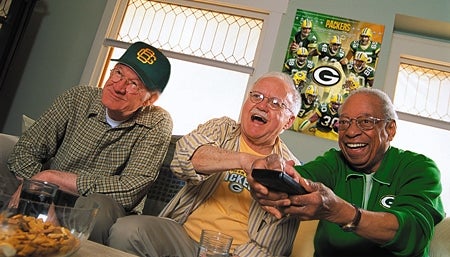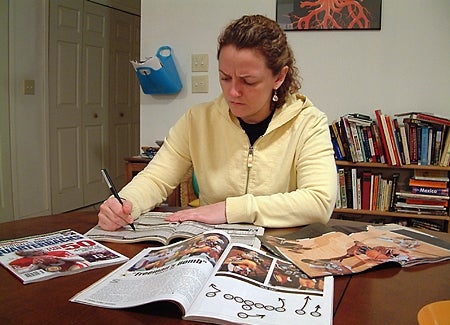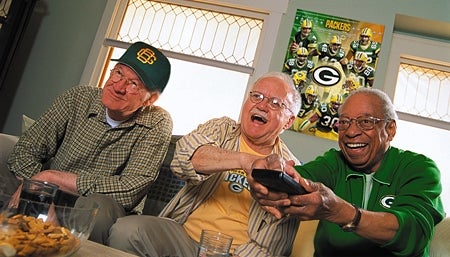WASHINGTON, DC—President Bush signed an ambitious Social Security plan into law Monday that will allow citizens to bet a third of their payroll taxes on their favorite sports teams.

“It’s time we gave the American people the chance to make some real money for retirement,” Bush said, speaking from the new Office of Social Security and Pari-mutuel Wagering Building. “Some naysayers think the average citizen doesn’t know how to handle his own money. When spring training starts next year, it’s up to you to prove them wrong.”
“It’s your money,” Bush added. “You earned it. You should be able to bet it on whatever team you want.”
Under the new plan, participating citizens will be asked to list their favorite teams on their W-2 forms. At the start of each major sports season, program participants will visit their local Social Security booking offices to review point spreads and sample playoff trees. Citizens’ team selections will be subject to approval by their employers, who contribute a percentage of wages to the employee Social Security Earned Benefits Fund, or “pot,” under the new system.
“For too long, Social Security has been managed by an elite group of government accountants and economists,” said U.S. Sen. Paul Ryan (R-WI), a longtime advocate of Social Security reform and athletics-based gambling. “Why let your retirement money sit around in an account when you could double or triple it in a single year? Under the new plan, anyone with access to a sports page can control his financial destiny.”
Added Ryan: “Assuming, of course, that Favre keeps a lid on those turnovers next season.”
Many in Congress praised the bipartisan Social Security Athletic Wagering Commission for “developing a system with favorable odds” for America’s taxpayers.
“The risk is greater, but so are the potential payouts,” said commission member U.S. Sen. Harry Reid (D-NV), who has long argued that sporting organizations have higher standards of oversight, accountability, and strategic transparency than the federal government. “Why, a Boston-area resident who placed 2 percent of his lifetime earnings on the Patriots or the Red Sox this year would have tens of thousands of dollars in his retirement fund. That’s a lot of squeeze, even after taxes.”

Reid refused to comment on the potential financial losses of a Brooklyn mother of three who bet the Mets, Knicks, Jets, or Giants during the past 10 years.
“Not everyone likes pouring money into a long-term account month after month, motivated only by the promise of a solid future,” newly appointed Social Security and Pari-mutuel Wagering chief Demitri “The Greek” Kannapolis said. “Now, citizens will be able to see their Social Security system working every time they flip through the sports pages. It’ll make the games more fun, too, because there’ll be more riding on them.”
Several members of Congress have criticized the plan.
“While we do need to restructure our Social Security system, this isn’t the way to do it,” U.S. Rep. Bob Matsui (D-CA) said. “Statistics show that certain groups of people—women below the poverty line, for example—don’t care about sports. I support an addition to the plan that will allow citizens who don’t follow professional athletics to put a portion of their SSI payout into lottery tickets.”
“Everyone deserves a chance at realizing the American dream, whether they like to follow the Rams or the PowerBall picks,” Matsui added.
U.S. Sen. Rick Santorum (R-PA) dismissed critics who contend that the plan will cause a $2 trillion shortfall in the current funds being paid out to seniors.
“People can nitpick all they want, but there’s a lot of money to be made if you take the time to do a little research,” Santorum said. “Just look at this football season. With the Steelers leading the AFC North and the Eagles leading the NFC East, people in my state might have benefited handsomely from an opportunity like this.”
Added Santorum: “Sure, we’re risking a couple trillion, but I got a feeling people are gonna double that money when baseball season comes around, no problem.”







